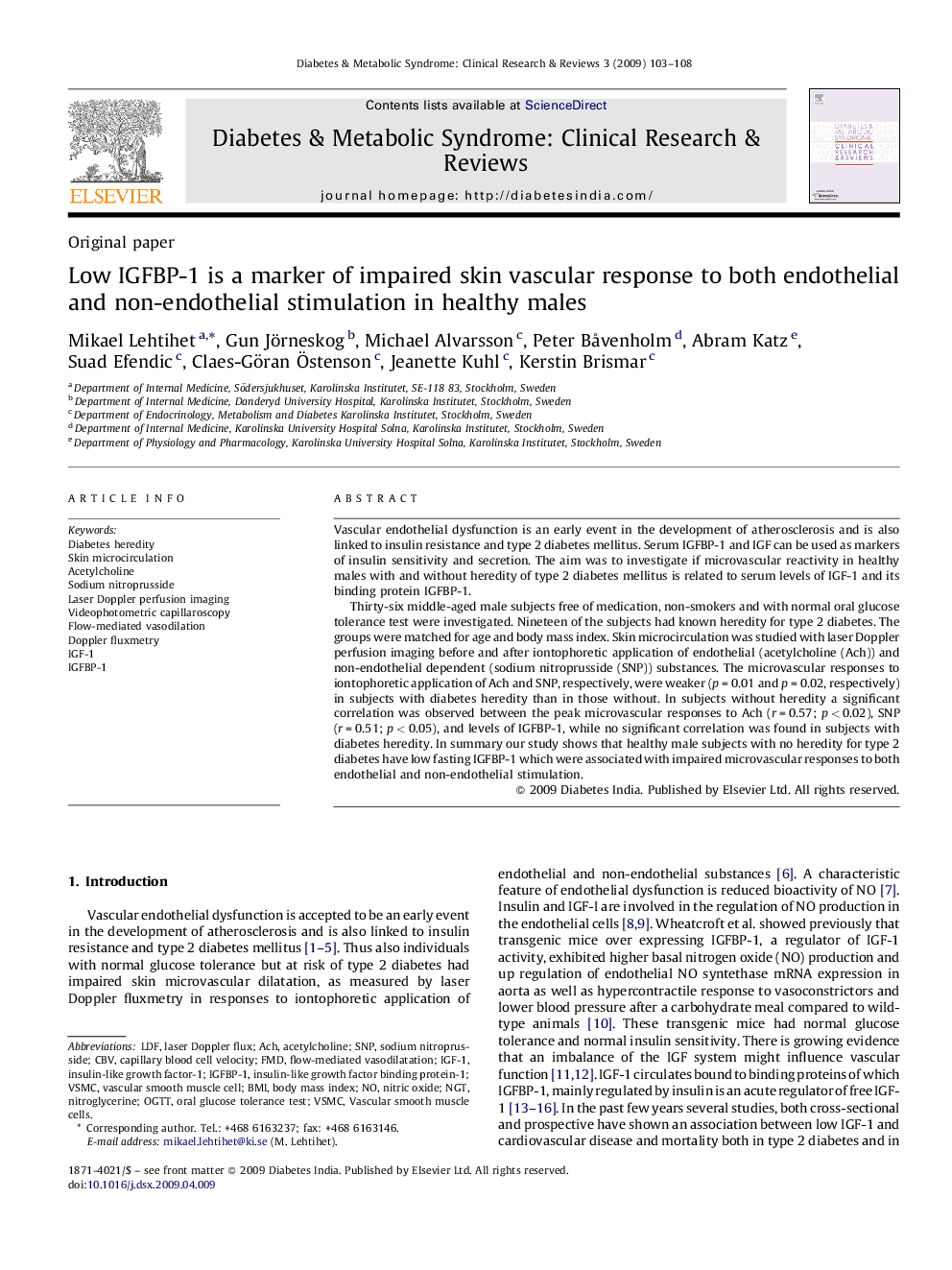| Article ID | Journal | Published Year | Pages | File Type |
|---|---|---|---|---|
| 2910376 | Diabetes & Metabolic Syndrome: Clinical Research & Reviews | 2009 | 6 Pages |
Vascular endothelial dysfunction is an early event in the development of atherosclerosis and is also linked to insulin resistance and type 2 diabetes mellitus. Serum IGFBP-1 and IGF can be used as markers of insulin sensitivity and secretion. The aim was to investigate if microvascular reactivity in healthy males with and without heredity of type 2 diabetes mellitus is related to serum levels of IGF-1 and its binding protein IGFBP-1.Thirty-six middle-aged male subjects free of medication, non-smokers and with normal oral glucose tolerance test were investigated. Nineteen of the subjects had known heredity for type 2 diabetes. The groups were matched for age and body mass index. Skin microcirculation was studied with laser Doppler perfusion imaging before and after iontophoretic application of endothelial (acetylcholine (Ach)) and non-endothelial dependent (sodium nitroprusside (SNP)) substances. The microvascular responses to iontophoretic application of Ach and SNP, respectively, were weaker (p = 0.01 and p = 0.02, respectively) in subjects with diabetes heredity than in those without. In subjects without heredity a significant correlation was observed between the peak microvascular responses to Ach (r = 0.57; p < 0.02), SNP (r = 0.51; p < 0.05), and levels of IGFBP-1, while no significant correlation was found in subjects with diabetes heredity. In summary our study shows that healthy male subjects with no heredity for type 2 diabetes have low fasting IGFBP-1 which were associated with impaired microvascular responses to both endothelial and non-endothelial stimulation.
